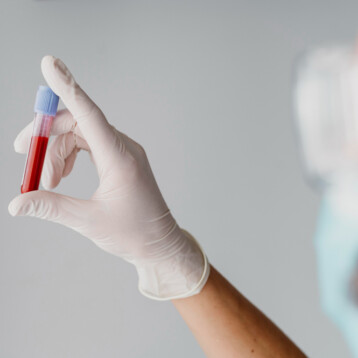
Addiction is a complex disease that affects millions of individuals worldwide. Overcoming addiction requires a comprehensive treatment approach that addresses not only the physical aspects but also the emotional and psychological aspects of recovery. One valuable resource in this journey is partial hospitalization, an intensive outpatient program that offers a middle ground between inpatient and outpatient care. In this post, we will explore nine major advantages of opting for partial hospitalization as part of the addiction recovery process.
1. Flexibility and Independence
Dallas PHP programs allow individuals to continue their recovery while maintaining their independence and daily routine. This level of care offers structured treatment during the day while enabling individuals to return home at night or reside in a transition living setting. This flexibility proves especially beneficial for those with personal or professional obligations, as it doesn’t require taking extended periods away from work or family responsibilities.
2. Continuity of Care
One key advantage of partial hospitalization is its ability to ensure continuity of care. When transitioning from residential treatment or intensive outpatient programs, individuals often face challenges adjusting to normal life immediately. Partial hospitalization provides ongoing support through therapy sessions, group counseling, and skill-building activities to assist with long-term sobriety goals.
3. Individualized Treatment Plans
Each person struggling with addiction has unique needs and factors contributing to their substance abuse disorder. With partial hospitalization comes an individualized treatment plan tailored specifically to address those needs thoroughly. Through intake assessments and ongoing evaluations, professionals can fine-tune treatment strategies to ensure maximum effectiveness in promoting sustainable recovery.
4. Appropriate Level of Support
Partial Hospitalization Programs (PHPs) include regular access to medical staff and behavioral health professionals who carefully monitor progress throughout the treatment process. After completing residential treatment or intensive outpatient programs and before moving towards traditional outpatient care, the level of structure offered by PHPs equips individuals adequately for the next phase. For those transitioning from more intense levels of care into newfound freedom, this intermediary stage of recovery offers the necessary support and guidance.
5. Comprehensive and Multidisciplinary Approach
Successful addiction recovery typically involves addressing various factors contributing to substance misuse. A partial hospitalization setting ushers in a multidisciplinary approach, where a team of specialists, including doctors, therapists, social workers, and addiction counselors, collaborate on providing comprehensive care. Addressing physical health needs, motivational therapy, counseling sessions, family involvement techniques, and holistic treatment practices comprise this well-rounded method’s foundation.
6. Supportive Peer Environment
Individuals often thrive when they find themselves surrounded by a community of like-minded individuals who can empathize with their struggles and lend valuable support throughout their journey. Partial hospitalization programs foster these connections through group therapy sessions, counseling, and peer-led activities, where encouragement, resilience, and learning from shared experiences become pillars of growth; inclusive spaces help individuals develop stronger foundations for lasting sobriety.
7. Aftercare Planning and Relapse Prevention
The transition from treatment to post-recovery life is crucial for long-term success. Partial hospitalization equips individuals with essential tools for handling triggers, managing stressors, and overcoming challenges while treating different types of addiction. As part of the program, experts also provide guidance and resources for creating an aftercare plan that caters to one’s specific needs. From helping establish a reliable support network to outlining coping strategies, professionals ensure individuals have the necessary tools to contribute to sustained recovery.
8. Transitional Support
Moving from a highly structured environment, such as inpatient treatment or residential care, to the outside world can be overwhelming. The transitional support provided by partial hospitalization programs creates a smoother shift and reduces the risk of relapse. This support includes developing healthy routines, implementing coping skills learned in treatment, addressing challenges that arise in everyday life, and providing guidance on how to reintegrate into society while maintaining sobriety.
9. Cost-Effective Option
While addiction treatment is an important investment in one’s health and future, it’s essential to consider the financial implications. Partial hospitalization programs often serve as a more cost-effective alternative to residential or inpatient treatment. By offering intensive treatment during the day and allowing individuals to return home at night, the costs associated with 24/7 supervision and accommodation are significantly reduced. This makes partial hospitalization a viable option for those seeking quality care without incurring excessive expenses.
Conclusion
Partial hospitalization programs offer numerous advantages in addiction recovery. The flexibility they provide, addressing specific individualized needs through highly structured care, collaborative and comprehensive approaches, reinforcement through a supportive peer environment, and insightful aftercare planning all contribute to maximizing success potential. This intermediate treatment level is proving to be an effective solution, bridging the gap between institutional care and independent living. By harnessing the power of partial hospitalization programs as a tool in addiction recovery, the chances of long-term sobriety increase multifold.










